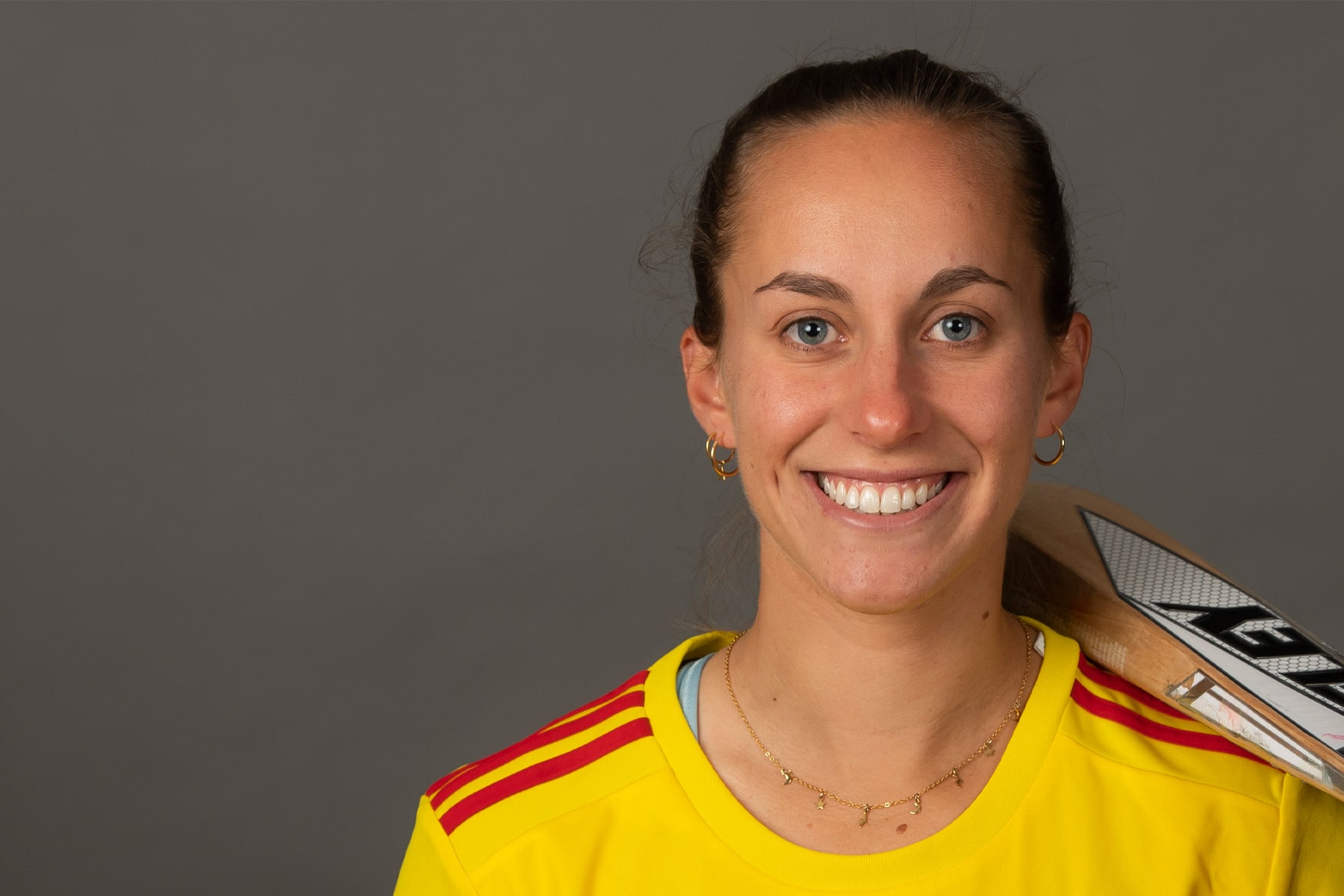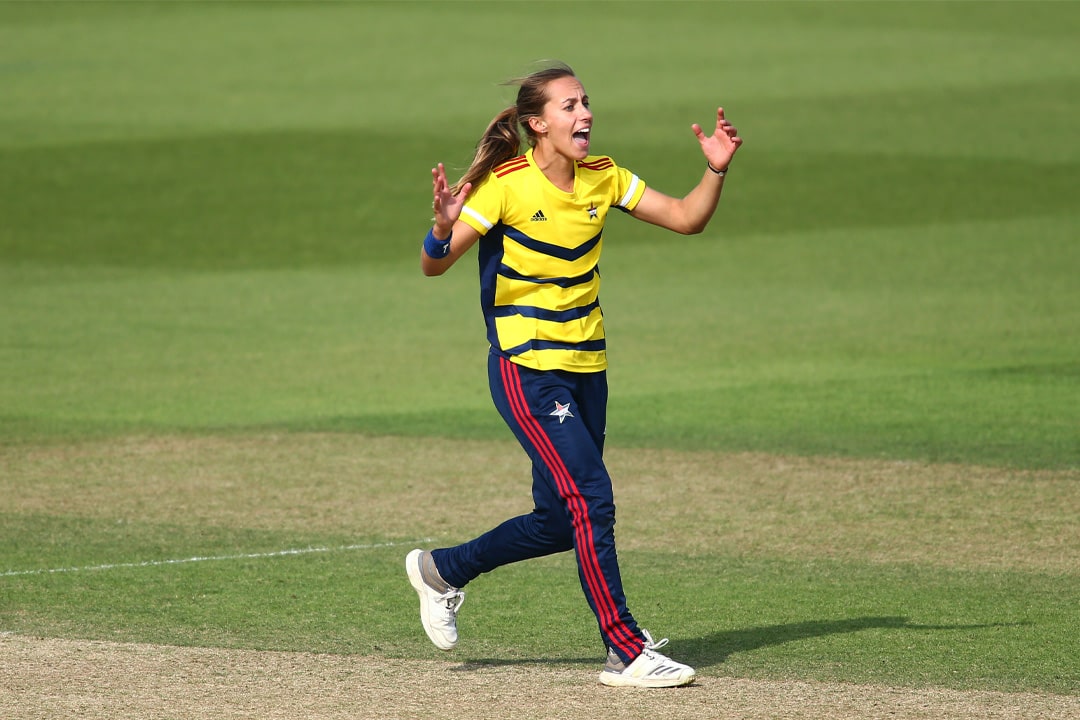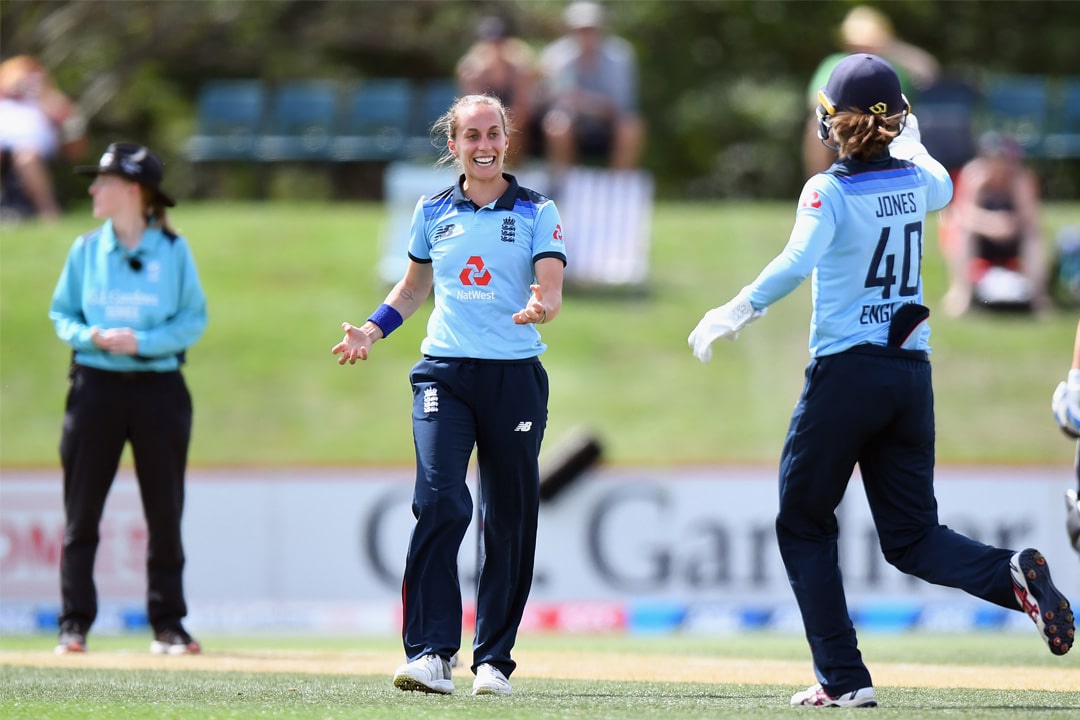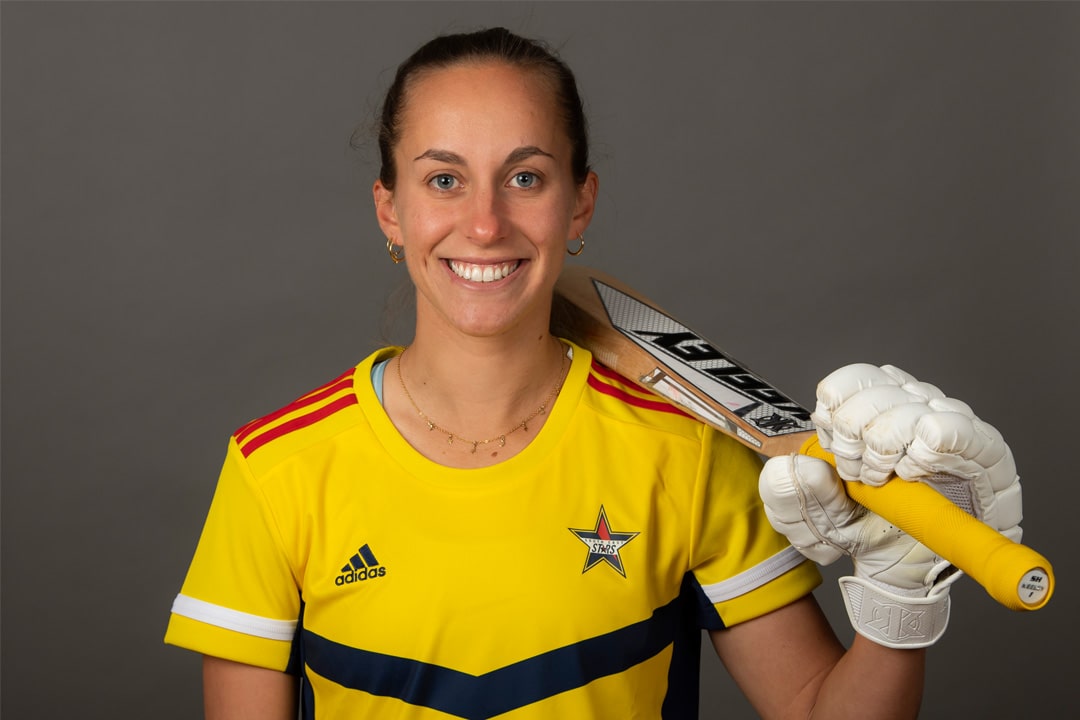PCA PRESS RELEASE
Tash Farrant on her return to international cricket and the positives of professional contracts.
To see more articles, click here
In 2019 Tash Farrant’s world came tumbling down. After making her England debut aged just 17, six years later her England central contract was terminated.
Having come straight from education into the international set-up, life beyond cricket was not at the forefront of her mind. That was until she found herself having to learn about life outside the sport quickly without a domestic structure to return to.
Back then, it was England or nothing in terms of professional contracts for the women cricketers, a hard pill to swallow sometimes.
“In pro sport it is normal that people are going to lose their contracts, and I was devastated at the time, no doubt about it,” says Farrant. “It did feel like the end of the world as I had nothing else to look to, to go towards or to take my mind off it.
“Cricket was all I knew. I’d been in the England set-up at 15 and that definitely felt like the be all and end all of the sport. Looking back however, it was good for me to get perspective outside of cricket and into normal life, but it was very difficult at the time as there was no structure underneath for me to fall back on, so it felt as though my career had come to a close.”
This is where women’s cricket has transformed during the past year. A year that for so many people was the toughest they’d faced, however for 41 women’s cricketers it had been the year they had dreamt of for so long.
A new tournament was announced, which became the Rachael Heyhoe Flint Trophy, in which eight regional women’s teams would compete in 50-over games. With this news came the announcement that 41 domestic players would sign the first female professional domestic contracts. Uncertainty over the Covid situation meant those selected players signed retainers, yet with the good news of a return to professional sport in June the tournament got underway. It was a great success, with over 100 females getting their taste of a professional cricket tournament, and for many gaining invaluable experience against the crème da la crème.
For Tash Farrant, it was everything she needed and more. Game time, a contract and freedom.
“In lockdown we got that call about the domestic contracts and structure, so when I got put on the retainer contract and then was able to play at the end of the summer it was an amazing feeling. I’m fully committed to South East Stars and I feel very good about my game, it has been really pleasing to get that contract and show all of my hard work and efforts to comeback after that disappointment.
“The support those domestic contracts will give us is going to amazing really, everyone will perform better on the field which is only a good thing for women’s cricket.”
The one aspect of earning the contract that stood out to most for Farrant was the ability to reduce the pressure on her performances, and after previously being stripped of her contract, it’s something that she has always had on her mind.
“Going to New Zealand with England in February, I felt so much more relaxed as I didn’t feel my whole career and job depended on how I performed in one game. Sometimes, that would be all you could think about, but now the pressure is off and you can go out, try to impress but safe in the knowledge you have something to fall back on.
“My ambitions to get back in the England team came a lot quicker than I expected, and my performances with South East Stars definitely helped, so that new domestic stricture has undoubtedly helped me progress.”
"To earn experience in that professional environment before England is so vital, and to have that balance is also key."
TASH FARRANT
The new contracts have obviously had a positive impact, and an impact that will be felt for many years to come for the current academy and pathway girls progressing. With a domestic structure to provide the foundations for international cricket, players will be able to see a much clearer route to professional cricket and earning their opportunity to represent their country.
“The new structure and contracts are amazing, not just for us but for all the players who will come next. The support is great, everyone will not only be performing better but will also have that chance now to play as a viable career which before for women was often not possible.
“To earn experience in that professional environment before England is so vital, and to learn that balance is also key. For me, when I was part of the England set-up after my debut, I think I was a little naive beforehand as to what professional cricket looked like. It was very consuming, and I forgot the value of things outside of cricket, so to have the experience prior to that will be so beneficial to players now.
“The PCA has also been great with the new contracts, helping especially those girls who have signed their first contract. They helped me when I lost my England contract to just get myself back up and running, and now they are even more involved in the women’s game and with that structure and support in place they can help in a number of ways.”
It is clear that the previous pressures of international games being possibly career-ending for women was a daunting experience. Not only do we now see increased visibility and professionalism for women’s cricket, but we also see freedom and passion for the game.
For Tash it was about overcoming disaster to come back stronger than ever and find that confidence to go out and perform, knowing that no matter what happens on the international stage, you have the structure underneath to support you. It is so important for women’s cricket and the changes we have seen have been revolutionary.
Read issue 28 of our membership magazine Beyond the Boundaries.
Find out more about the England Women’s Player Partnership (EWPP).



















